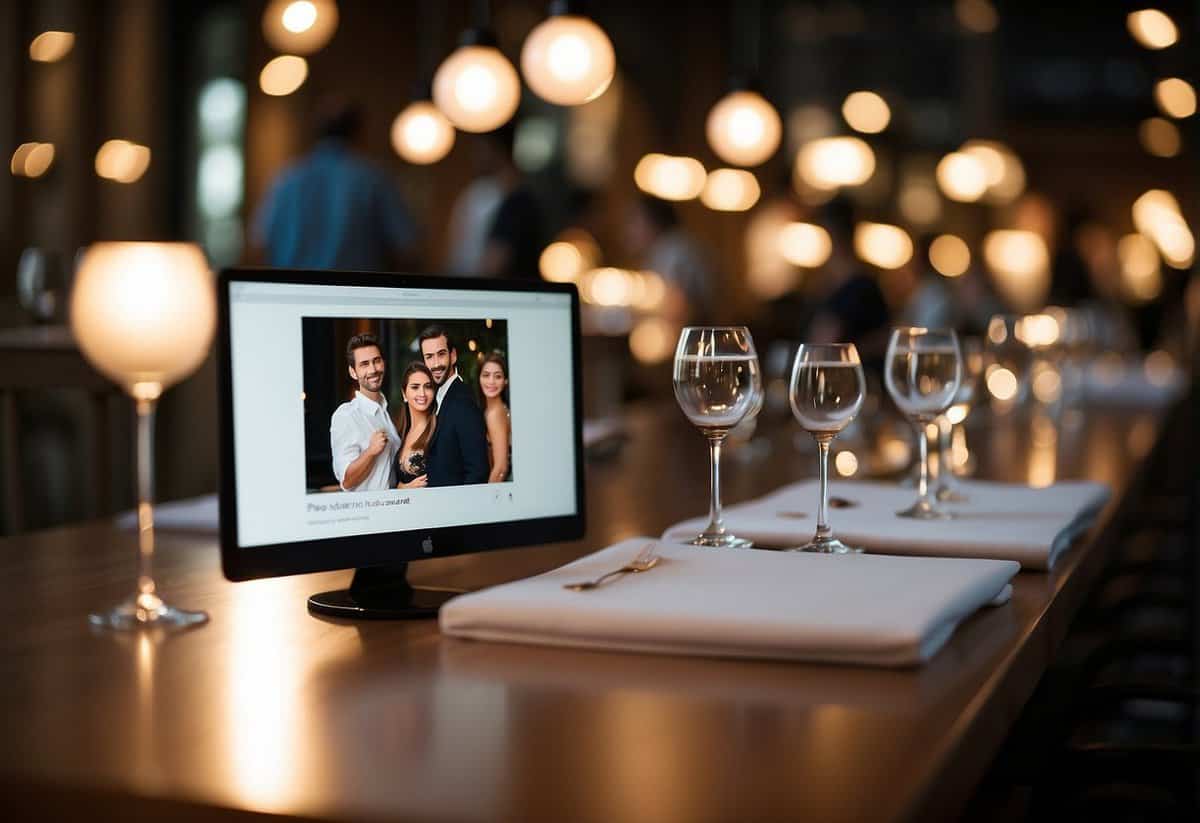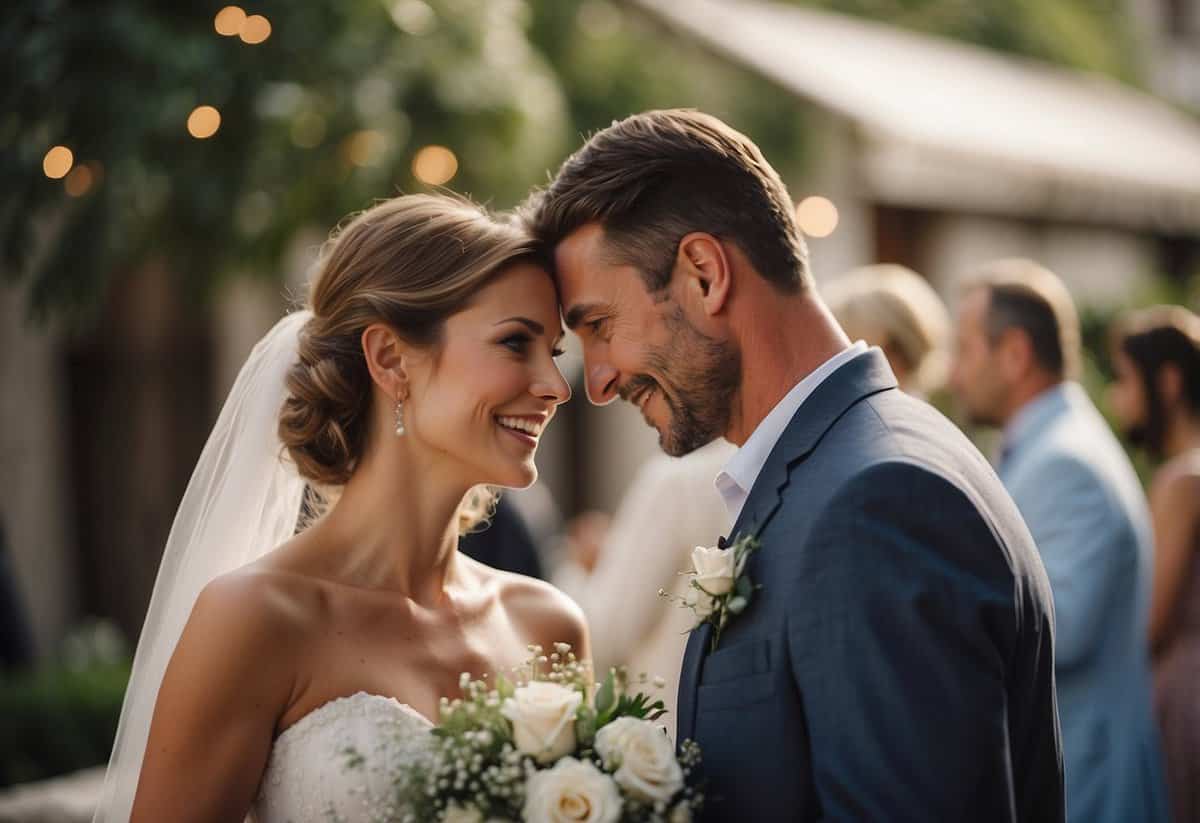Pros and Cons of a Small Wedding: What You Need to Know
Planning your wedding can be both exciting and overwhelming. One decision you’ll face is whether to have a big celebration or a more intimate gathering. A small wedding offers many benefits that can make your special day even more memorable.

One major advantage to a smaller guest list is the intimacy it provides. You’ll get to spend quality time with each of your guests, making the event feel more like a heartfelt celebration with close friends and family. Additionally, a small wedding often means fewer worries about logistics and costs, leaving you with more room to focus on meaningful details.
However, it’s important to consider some potential downsides as well. Not everyone you care about may be able to attend due to the limited guest count, which can lead to difficult decisions. Before making your final choice, weigh these factors to ensure your wedding day is everything you’ve dreamed of. For more insights, check out this comprehensive list of pros and cons of a small wedding.
Advantages of a Small Wedding

A small wedding can be very special. You can focus on spending quality time with loved ones, save on costs, and plan a day that truly reflects your personalities and preferences.
Intimacy and Quality Time
An intimate wedding lets you create special moments with your closest friends and family. Because there are fewer people, you can share personal conversations and laugh together. Smaller guest lists make it easier to connect with everyone present.
You won’t have to rush from table to table to greet guests. Instead, you can sit down and enjoy meaningful moments. This can make the day more memorable for everyone involved.
Budget-Friendly Options
A smaller guest list leads to a lower budget. With fewer people, you save on food, drinks, invitations, and other costs. You can even choose more affordable venues, such as a friend’s backyard or a small event space.
This allows you to allocate your money to other parts of the wedding that matter most to you. Small weddings are often easier to manage financially without sacrificing the quality of your special day.
Freedom to Splurge
When you have fewer guests, your budget stretches further. You might decide to splurge on high-quality food, unique decorations, or an unforgettable venue. This is because you need less of everything from chairs to wedding favors.
Some couples use this as an opportunity to add personal touches, such as DIY decor or luxurious elements they couldn’t afford with a larger guest list. This means you can create a wedding that truly feels like yours.
Simplified Planning
Planning a small wedding is usually simpler and less stressful. With fewer details to manage, you can focus on the important moments. Decisions about seating arrangements, catering, and logistics become less complicated.
You may also find it easier to get help from friends and family with DIY projects and other wedding ideas. This can make the planning process more enjoyable and personal.
Disadvantages of a Small Wedding

Small weddings, while intimate and cost-effective, come with several challenges. These include a limited guest list, potential hurt feelings among friends and family, and restrictions from venues and vendors.
Limited Guest List
One significant drawback of small weddings is the limited number of guests you can invite. When planning a small wedding, you need to be very selective about who makes the cut. This can be stressful because there are always people you feel obligated to invite.
You may end up leaving out some distant relatives or childhood friends. This can make the planning process complicated as you try to balance relationships and keep the event intimate.
Additionally, limiting your guest list can mean not having enough room for important people in your life whom you would like to celebrate with. This can create difficult decisions and may impact the overall joy of your special day.
Hurt Feelings
Smaller weddings often lead to hurt feelings among those who aren’t invited. Friends and family who expect to be part of your big day might feel excluded or undervalued. This can strain relationships, especially if they hear about the wedding from someone else.
It’s hard to prevent every possible hurt feeling, especially when you have to make tough decisions about who to invite. Open communication can help, but it doesn’t always prevent disappointment from those left out.
Addressing these hurt feelings may require delicate conversations. You may need to explain your reasons for having a small wedding and emphasize your desire for an intimate celebration.
Venue and Vendor Restrictions
Choosing a small wedding can limit your venue and vendor options. While a smaller guest list might give you more flexibility with some venues, others may have minimum guest requirements that you won’t meet.
Additionally, some vendors might have minimum charges regardless of guest count, which can make it challenging to get value for your money. For example, caterers often have minimum food orders, which could lead to higher costs per person.
You might also struggle to find venues that suit the style and size of your wedding, as larger venues could feel empty with fewer guests. This can make planning more complex and requires careful consideration to ensure a cohesive and enjoyable event.
Financial Considerations

Planning a small wedding can significantly impact your budget in both positive and negative ways. In this section, we explore how to evaluate wedding costs and how to allocate your funds wisely to make the most of your special day.
Evaluating Wedding Costs
The cost of a wedding often hinges on the number of guests. With a smaller guest list, you’ll likely find more flexibility in choosing affordable venues. Many large venues have strict capacity rules that can make them more expensive.
Catering is another major expense. With fewer guests, you can cut down on food and drink costs. This can also mean you can afford better-quality meals. You’ll also save on rentals like tables, chairs, and linens, as fewer items are needed.
Another area where costs drop is invitations. Less printing and postage mean more savings. Whether you go for digital invites or simpler printed ones, you’ll still see a significant cut in your costs. Though fewer guests might lead to fewer wedding gifts, the reduced expenses often make it worthwhile.
Allocating Funds Wisely
First, set your wedding budget with all these potential savings in mind. Prioritize what matters most to you. For some, this might be an elaborate dress or premium catering. For others, it’s a beautiful venue or memorable favors.
Focus on value for money when choosing vendors. Sometimes paying slightly more for an excellent photographer can preserve your special moments better. Meanwhile, DIY decoration options can save money while adding a personal touch to your wedding.
Lastly, consider putting some funds aside for a honeymoon or future expenses. By carefully allocating your budget, you can ensure that while your wedding is beautiful and intimate, it’s also financially savvy.
Personalizing Your Wedding

Making your wedding uniquely yours involves creative projects and thoughtful touches that reflect your personalities. Consider using DIY projects and small details to infuse your personal style into the celebration, and focus on creating a memorable, intimate atmosphere for you and your guests.
DIY Projects and Details
DIY projects are a great way to add a personal touch to your wedding. Creating your own decorations, like handmade centerpieces or customized signage, lets you showcase your style. Personalized wedding favors, like homemade candles or small potted plants, can add a warm, personal feel to your special day.
Think about designing your own invitations and thank-you cards. This not only saves money but also makes the items special. Adding family photos or favorite quotes can make the stationery even more meaningful.
A small wedding allows for more attention to detail. You can focus on unique table settings, like custom napkin rings or personalized menus. These small touches can make your guests feel cherished and part of your intimate celebration.
Creating a Memorable Atmosphere
Creating an intimate and memorable atmosphere is key. Choose a venue that means something to you, like a favorite park or a cozy backyard. Simple, meaningful decorations can transform the space into a reflection of your love story.
Music can set the tone for the entire event. Curate a playlist with songs that are important to your relationship. Incorporate tunes from different moments in your lives to evoke memories for both you and your guests.
Lighting plays a significant role in creating ambiance. Use soft fairy lights or candles to create a warm, inviting glow. This can add to the intimate feel of your wedding and make the celebration feel even more special for everyone involved.
Logistical Dynamics

When planning a small wedding, there are key logistical elements to consider. Two major aspects are choosing the right food and drinks, and ensuring comfortable and efficient seating arrangements.
Food and Drink Selection
Choosing the right food and drink is crucial for a small wedding. With fewer guests, you can focus on personalized and high-quality options. You might opt for a gourmet menu, including specialty dishes that cater to your guest’s preferences.
Offering a variety of drinks, including fine wines and craft beers, can elevate the experience. You also have the opportunity to include unique options like signature cocktails. Since there are fewer people, it’s easier to manage dietary restrictions and vegetarian or vegan needs.
Additionally, working with a caterer can be more flexible with a smaller guest list. You’re not bound by bulk orders, allowing for greater customization. This is also a chance to enhance the dessert selection, perhaps with a beautifully crafted cake or an assortment of mini desserts.
Seating Arrangements and Comfort
Seating arrangements for a small wedding can be more intimate and personalized. You can create a seating chart that fosters conversation and connection among guests. Instead of large banquet tables, consider using smaller, round tables that accommodate 6-8 people.
Comfort is key, and with fewer guests, you can invest in more comfortable seating options. Padded chairs or stylish lounge furniture can make a big difference. It’s important to ensure that the seating is arranged to maximize the space of your chosen venue.
For outdoor venues, consider weather-appropriate seating arrangements such as providing shade or heaters. Also, think about the flow of the venue; guests should be able to move easily between the ceremony, dining area, and dance floor.
